It is always interesting to know the tricks to choose the best fruits, and here are some tips to choose 14 fruits, and also the trick to know what we can do with them when they are too ripe. And speaking of overripe, it is good to separate the fruits from each other and from the vegetables since most produce ethylene, and this accelerates its decomposition.
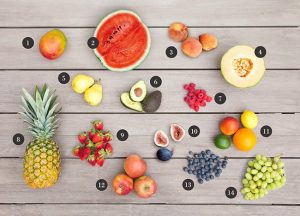
1. MANGO
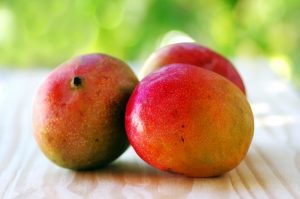
Season: Mostly imported from tropical climates and can be found throughout the year.
Do they continue to ripen after being picked? Yes, mangoes ripen and become sweeter.
View: We should not choose the handles that have bruises or soft spots or wrinkled skin. Pick ones that are bright yellow, orange, or reddish in color.
Touch: a ripe mango should be firm but give a little bit when gently pressed. Avoid any that will sink too much when pressed as it will be overripe.
Smell: It should have a sweet aroma, especially near the stem.
What to do if it’s overripe: peel and freeze for future shakes or smoothies
2. WATERMELON

Summer season
Does it continue to mature after being picked ?: NO.
View: Avoid any watermelon that has bruises, soft spots, or cracks. Look at the point where it was attached to the ground, it should be cream, if that point is white, the watermelon is green. As for the color of the Watermelon, it should be dark green, have a dull appearance instead of shiny and have a uniform oval shape.
Touch: Charge it! The watermelon should feel heavy for its size. Tap it with your knuckles and if it sounds hollow, it’s probably ripe by now. Not everyone believes in this last trick but it works for me!
Smell: Watermelons do not have a strong smell.
Ethylene: Neutral.
What to do when it is overripe ?: You can make fresh watermelon juice.
3. PEACHES

Summer season
Does it continue to ripen after picking? Yes, peaches do get softer and juicier after picking but they don’t get sweeter.
View: Avoid anyone with bruising, soft spots, or dents. Look for peaches with a deep orange or yellow hue, and be sure to check near the trunk, as you see any green or white color it means that the peach is not ripe.
Touch: It should be firm but give slightly when pressed.
Smell: A ripe peach smells great. If it doesn’t smell delicious, it’s not ripe.
Ethylene: Neutral.
What to do when it is overripe ?: You can make jam, a cake or freeze without the skin to make smoothies.
4. MELON

Summer season
Does it continue to ripen after being picked ?: Yes, melons become softer and juicier, but not sweeter.
View: Avoid melons that have any type of bruises, soft spots, or cracks. The surface of the melon should have a golden hue rather than white or green.
Touch: Choose one that is heavy for its size and make sure that the part where the stem was there is no mold or discolored
Smell: It should have a smooth, fresh, sweet scent especially near where the stem was. We have to avoid any melon whose aroma has a fermented smell because it is already a sign that it is rotting.
Ethylene: Yes it produces.
What to do when it is excessively mature? You can freeze it without the shell to make smoothies.
5. THE PEARS
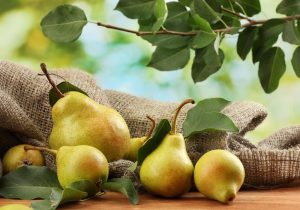
Autumn-winter season
Does it continue to ripen after being picked? Yes, pears become softer and sweeter after being picked.
View: As in almost all fruits, avoid anyone with bruises, soft spots, dents, or wrinkled skin. Check on the stem to make sure it looks firm and fresh.
Touch: A perfectly ripe pear should feel firm but should also yield to gentle pressure at the base.
Smell: Ripe pears have a delicious sweet smell.
Ethylene: Neutral.
What to do when it is overripe ?: You can make pear puree or compote.
6. AVOCADO
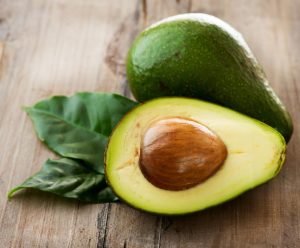
Spring summer season
Does it continue to ripen after being picked ?: Avocados ripen only after being picked
View: Avoid anyone with bruises, soft spots, or cracks. The size of an avocado, the shape or color are not great indicators of quality or maturity, you should take into account the touch. Look at the part where it was attached to the stem, if that point has a yellowish color it is about. If it is brown, it is already rotting.
Touch: A perfectly ripe avocado feels firm and hardly yields when pressed. If it feels too soft under pressure, it is too ripe. Generally those that are ready, the seed should be felt when moving them. If the avocado is very hard, it is not that it is bad, you can consume it in a couple of days, which is what it usually takes to ripen.
Smell: Avocados smell only when overripe, avoid them. Always choose the ones that have no smell
Ethylene: Yes it produces.
What to do when it is overripe ?: You can make guacamole or smooties
7. RASPBERRIES
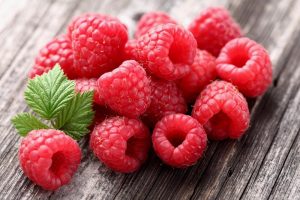
Season: Summer / Autumn
Does it continue to mature after being picked ?: NO.
View: Choose raspberries that have a uniform deep red color. They should look plump, dry and firm. Avoid those that are mushy or those that have mold.
Touch: If they are in a plastic bag, gently shake them to make sure they move freely. If they don’t, there are probably some rotten or moldy ones.
Smell: They should have a subtly sweet and fragrant smell.
Ethylene: Neutral.
What to do when they are overripe ?: Freeze for smoothies or to make a compote or jam and pour it over an ice cream or pancakes!
8. PINEAPPLE

Season: Mostly tropical climates, but the high season is March-July
Does it continue to mature after harvest ?: YES.
View: A ripe pineapple can look green, but it is best to look for one that has a nice yellow color at the base, or all over the fruit. The top leaves should be green and the skin should look firm
Touch: It should be firm but not hard like a stone. If it yields a bit when pressed, it means that it is juicy but too ripe. Check the underside of the pineapple to make sure there is no mold or discoloration. A ripe pineapple leaves the leaves off easily if pulled.
Smell: It should have a sweet and fresh aroma. Avoid those that have a fermented smell as they would be excessively ripe.
Ethylene: Neutral.
What to do when it is overripe ?: One option is to freeze it without the skin to make smoothies or use it in pina coladas. By the way! you can make the juice and or cut it into slices for this pineapple cake
9. STRAWBERRIES
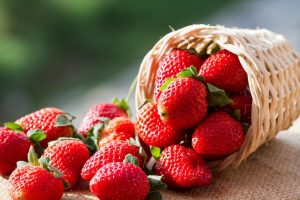
Spring summer season
Does it continue to mature after being picked ?: NO.
Look: Look for strawberries that have a uniform red color. Any trace of white or green means they were picked early. Check that none of them are moldy, crushed, or leaking liquid.
Touch: If they’re in a plastic bag, just like raspberries, give them a little shake to make sure they move freely. If not, there are probably some moldy ones out there. Check that there are no stains or stickies at the bottom of the bag.
Smell: Ripe strawberries have a delicious sweet smell and are very aromatic.
Ethylene: Neutral.
What to do if it is overripe ?: You can make jam or freeze for shakes or smoothies.
10. FIGS
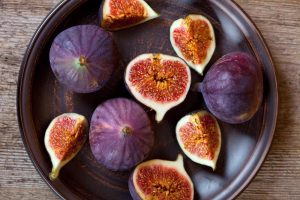
Season: Two: early summer and early fall.
Do they continue to ripen after being picked? Yes, figs become softer and juicier, but not sweeter after being picked
View: Look for figs that have a smooth and firm skin. Small cracks are fine, as long as they are not leaking. Make sure none of them have mold, soft spots, or liquid leaking. Avoid anyone who exudes milky liquid.
Touch: A perfectly ripe fig will be plump and juicy and will hold its shape when lightly squeezed. If it is too firm, it is probably green or dry inside, and if it is too soft, it is too ripe.
Smell: Ripe figs will smell fresh and slightly sweet.
Ethylene: Neutral.
What to do if they are overripe ?: Make fig jam or poach quickly for dessert.
11. CITRUS (ORANGES, LEMONS, LIMES, GRAPES)
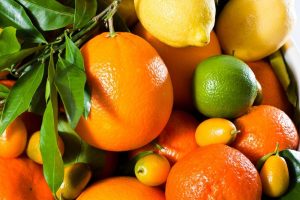
Winter season
Do they continue to mature after being picked ?: NO.
Eyesight: Look for those with firm skin and avoid those with bruises, visible mold, or soft spots.
Touch: Ripe citrus fruits tend to feel heavy for their size.
Smell: Not a great indicator, but it might smell sweet near the trunk.
Ethylene: Little.
What to do when they are excessively ripe ?: Make natural orange juice or to take it alone or for cocktails or slushies.
12. APPLES

Season: Fall
Do they continue to ripen after being picked? Yes, the apples become softer and sweeter.
View: Avoid anyone with bruises, soft spots, dents, or wrinkled skin. It has no influence on whether the skin is shiny or matte.
Touch: It must be extremely firm. Press gently with your thumb, its sag a little, do not choose them.
Smell: A ripe apple will have a pleasant subtle smell, but an overripe apple will have a strong sweet and slightly fermented smell. Less smell is better.
Ethylene: Yes Produces.
What to do when they are overripe ?: You can make applesauce or puree, or you can roast it with a little butter and brown sugar for a delicious dessert!
13. BLUEBERRIES
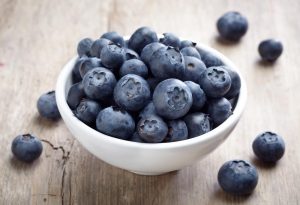
Season: Late Spring / Summer
Does it continue to ripen after picked ?: Yes, blueberries, they get softer and juicier but not sweeter.
Eyesight: Avoid those that are moldy, too soft, leaky, or those with wrinkled skin. They should be deep blue in color and often have a slightly chalky tinge.
Touch: If they are in a plastic bag, shake them and make sure they move freely. If they do not move, there are probably some rotten or moldy, like strawberries and raspberries, check the bottom of the bag for liquid or pasty stains.
Smell: Generally, although they are ripe, they are not very aromatic
Ethylene: Neutral.
What to do when overripe: You can freeze them for smoothies or use them on pancakes.
14. GRAPES
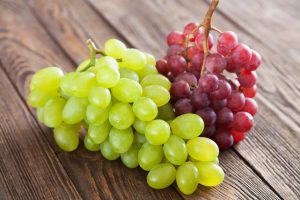
Season: Fall
Continues to ripen after picked: NO.
View: Look for grapes that are plump and firm, that are not wrinkled, that do not have any brown spots or bruises and that are strongly attached to their stem.
Touch: Depending on the variety, some grapes are naturally softer than others, but should always feel relatively firm and springy.
Smell: Not a great indicator for grapes, but avoid any that smell too sweet or fermented.
Ethylene: Neutral.
When overripe: You can freeze them and eat them as an aperitif, or use them to decorate a cheese plate or a good tip is to place the frozen grapes inside